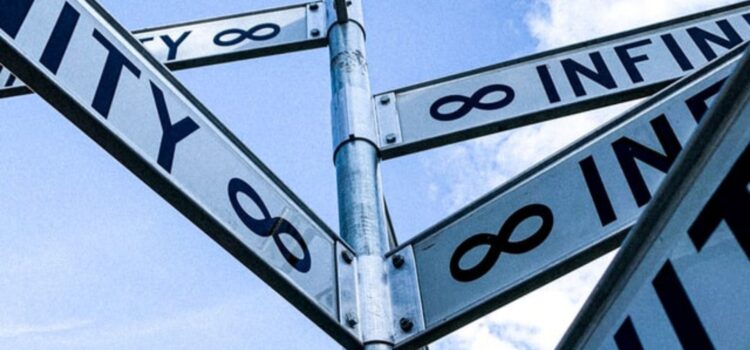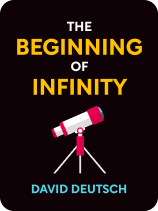

This article is an excerpt from the Shortform book guide to "The Beginning of Infinity" by David Deutsch. Shortform has the world's best summaries and analyses of books you should be reading.
Like this article? Sign up for a free trial here .
What is infinity? How can we easily understand the concept of infinity?
Infinity is a hard concept to grasp logically. The Beginning of Infinity‘s author David Deutsch believes that the human mind has a natural aversion to it. That’s why he found a way of explaining it that anybody can understand.
Read more to have a better understanding of infinity as a concept.
What Is Infinity?
Many people find it easier to think of infinity as some arbitrarily large number, but that’s a poor approximation. Instead, we can illustrate the concept of infinity with a simple thought experiment:
Imagine a person standing in an endless hallway. He walks an endless distance down that hallway. Once he’s done so, there’s still an endless distance ahead of him. He repeats this process countless times, but there is still an immeasurable distance between him and the end of the hallway. This is why Deutsch says, no matter how much knowledge we create, we’ll never know everything—in other words, no matter how far we travel, we’ll never reach the end of the hallway.
It’s also why imagining infinity as a really big number doesn’t work: Infinity doesn’t obey the same rules as finite numbers do. Instead, it may help to picture infinity as an unreachable destination; no matter how long we travel, we never get closer to it.
All Infinities Aren’t the Same
It will be easier to understand the endless hallway thought experiment if you recognize that there are many different sizes of infinity. That’s counterintuitive—surely infinity should equal infinity—but we can prove it with an easy example:
- Consider the set of all positive integers (0, 1, 2, 3…∞). That’s an infinite string of numbers.
- Now consider the set of all integers greater than or equal to -1 (-1, 0, 1, 2…∞). This is also an infinite string of numbers, but there’s one more number than in the previous set.
As you can see, infinity isn’t a fixed value. That’s why traveling an infinite distance down an infinitely long hall won’t get you to the end of that hall.
An Infinity of Infinities
Another way Deutsch explains how we could possibly have “more” than infinite knowledge is that we live in a multiverse: A web of interconnected universes that each stretch infinitely (like our hallway). Every one of those infinite universes is unique; any given universe could be almost identical to our own, or completely different from anything we’ve seen.
This suggests one way in which infinite knowledge creation wouldn’t lead to the endpoint of knowledge—even if we create all possible knowledge in our own universe, there would still be an infinite number of other universes to learn about.
(Shortform note: Various theories over the last 70 years or so have predicted different numbers of universes in the multiverse. The Many-Worlds Theory of the 1950s proposed an infinite multiverse like Deutsch describes here. More recently, String Theory predicted 10500 different universes (that’s a one followed by 500 zeroes)—which is an enormous number, but not infinite. Stephen Hawking’s final paper before his death also predicted a finite number of universes, though he did not say exactly how many.)

———End of Preview———
Like what you just read? Read the rest of the world's best book summary and analysis of David Deutsch's "The Beginning of Infinity" at Shortform .
Here's what you'll find in our full The Beginning of Infinity summary :
- That there is an infinite amount of knowledge in the universe
- Why humanity must never stop learning
- How new knowledge changes civilization for the better






